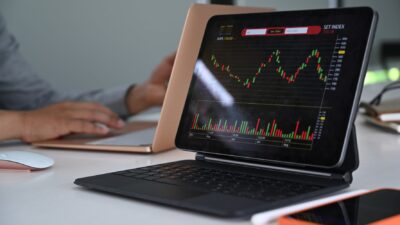
The Oxera Energy Model: price coupling in the European energy mix
Oxera’s new Energy Model enables detailed analysis of a range of future scenarios involving the energy generation mix in Europe. The interactive map below showcases one example relating to price coupling. (For an introduction to this topic, see Oxera’s Agenda article from April 2023.)… Read More

Understanding and influencing behaviour: economics vs science
Have you heard the terms behavioural science and behavioural economics floating around? Individuals, corporations and governments are turning to both in the quest to understand and change human behaviour—but does their application add value? And what is the difference between these two similarly named disciplines? With reference to our… Read More

Computer move? Chess cheaters and the limits of algorithmic detection
In September 2022, World Chess Champion Magnus Carlsen dramatically quit a tournament after losing a game to teenage Grandmaster Hans Moke Niemann, leading many to accuse Niemann of cheating. Niemann has since launched a court case for slander, libel and unlawful group boycott against Carlsen and other members of… Read More

Agents of change: bringing economic models closer to reality
Ever wondered how economic models can describe people and their behaviour? Agent-based modelling (ABM) may be the answer. It allows economists to explore complex systems and phenomena in a bottom-up, data-driven way. Unlike traditional economic models, which are often constrained by assumptions and simplifications, ABM offers a flexible and… Read More

Who doesn’t invest and why? A behavioural data science perspective
As we adjust to a high inflation environment, those who are fortunate enough to have savings are seeing their purchasing power erode by up to 10% per year. In the UK, one way to mitigate the effects of inflation is through investing in Stocks and Shares ISAs. But why… Read More

The use of discrete choice experiments in applied economic analysis
Observed behaviour is usually understood to be the best indicator of future choices. This ‘revealed preference’ data is therefore favoured by practitioners as the basis for economic models. However, many economic questions involve looking at markets that do not (yet) exist, or ‘but for’ hypothetical situations that did not actually… Read More

Interminable: who can read T&Cs?
Many products form a contract between a firm and a customer, the details of which are specified in the terms and conditions (T&Cs). But do customers always understand what they are agreeing to? With the help of a mathematical formula, we find that the reading age and time requirement of… Read More

The Consumer Duty: don’t do more—do differently
The UK Financial Conduct Authority (FCA) has finalised the rules, guidance, and implementation period for the new Consumer Duty. The FCA’s journey The Consumer Duty is the product of 15 years of evolution in the regulation of financial services. It’s not so much a change… Read More

Hidden talent: the economic benefits of social mobility
Social mobility is widely considered to be intrinsically good: decoupling an individual’s prospects from their social status or family background is a key pillar of fairness and social justice. This perspective has filled philosophy textbooks and opinion columns, but what is less well understood is the role that social mobility plays in boosting productivity and economic output. Read More

Causality and natural experiments: the 2021 Nobel Prize in Economic Sciences
The Royal Swedish Academy of Sciences awarded the Sveriges Riksbank Prize in Economic Sciences in Memory of Alfred Nobel 2021 to three economists—Joshua Angrist, David Card, and Guido Imbens. Their contributions to the economics literature shaped economists’ understanding of when causal relationships can be established, especially using non-experimental data, and what kinds of methods and assumptions allow us to uncover the true causal effect of one variable on another. Today, businesses, courts and policymakers rely on causal empirical evidence to make their decisions. Read More

